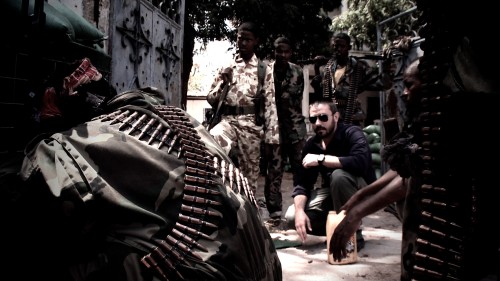Searching for Sugar Man (2012)
85th Academy Awards 2013
3/5 Stars
Nominated for 1 award, which it won.
Won Best Documentary Feature (Malik Bendjelloul, Simon Chinn).
Watched April 14, 2014.

Searching for Sugarman is half horror story and half fantasy for musicians. Two South Africans are in search of what became of the 1970s rock and roll legend Rodriguez. The catch is that he is only a legend in South Africa, despite his being an American.
The documentary interviews multiple people who say that Rodriguez was the real deal. His soul and lyrics made him as big as the Beatles or Elvis Presley in South Africa, but no one in the States knew who he was. He recorded two albums and then disappeared into obscurity. In the days of no internet and only album covers, no one picked up something by a “Rodriguez” to listen to.
Somehow Rodriguez’s album made its way to South Africa, unbeknownst to him or his record label. It spread like wildfire and genuinely helped spur on political revolution. He was an inspiration to local bands and his lyrics built up a nation that felt oppressed by their leadership.
No one knew what happened to Rodriguez. There were all sorts of rumors about his very public and gruesome suicide, but no one actually knew. This film is the search for his story and what became of a legend.
For the most part, I saw Sugarman as a feel good film. I won’t say too much (no spoilers here!), but the end of the film, story wise, was my favorite. The story was good, the interviews were good, and the information presented was all good. The execution of the film, particularly editing wise was not as successful. I felt that once it reached its climax the pace was extremely slow. Despite its few flaws, I think that this film will really resonate with anyone who has once pursued a career in music.
Aften having seen the film, I don’t know if I would ever watch it again. Although it was interesting, there was almost too much information and not enough B-roll (non-interview footage). If you can connect with the struggle of a musician, or you would like to listen to some great music, then this is definitely the documentary for you.
(Trailer contains spoilers!)



